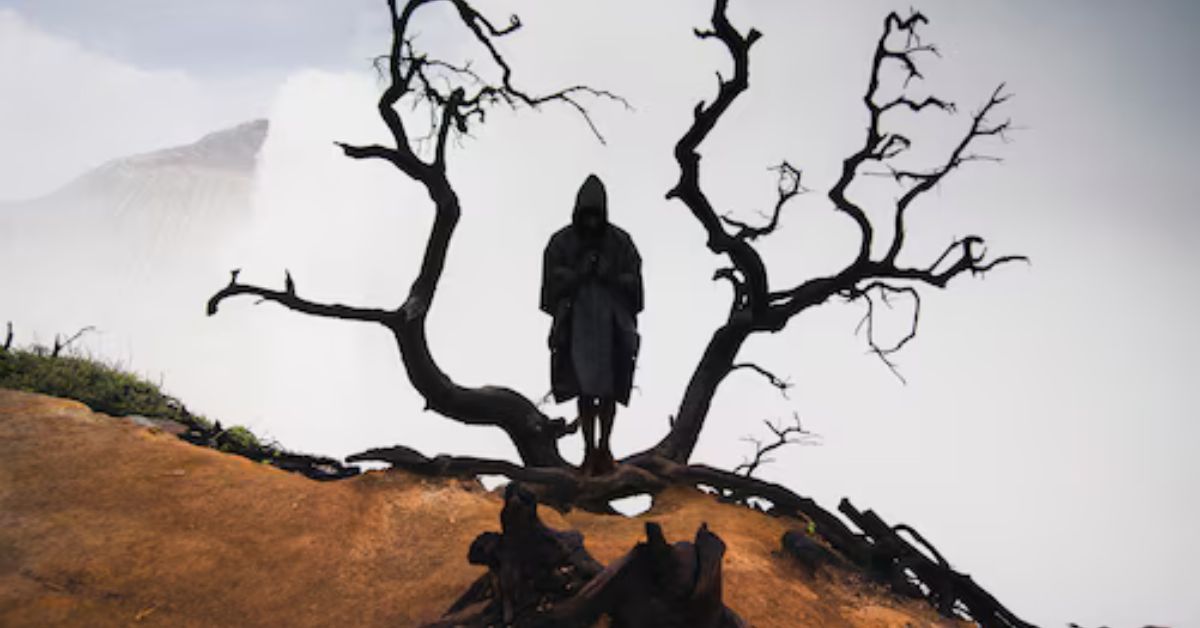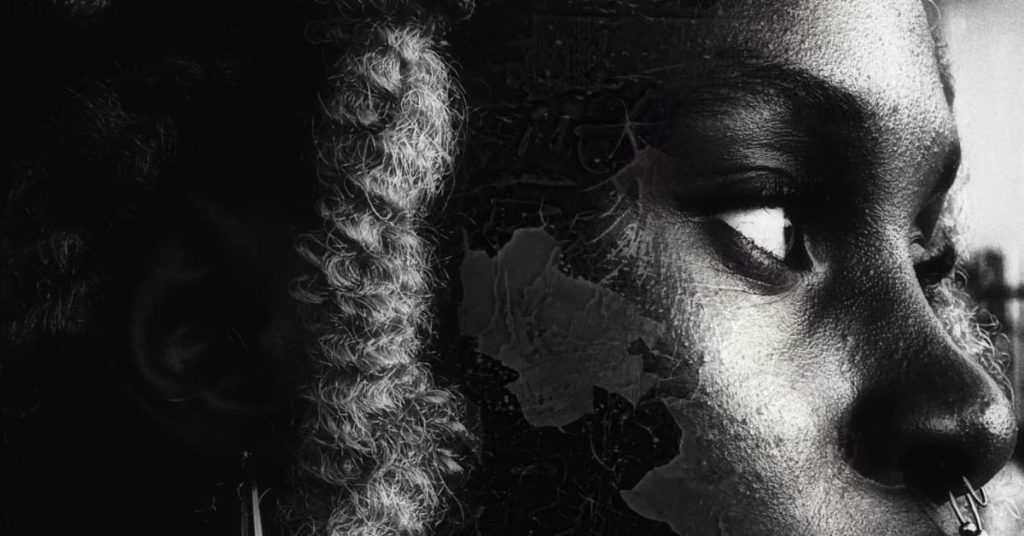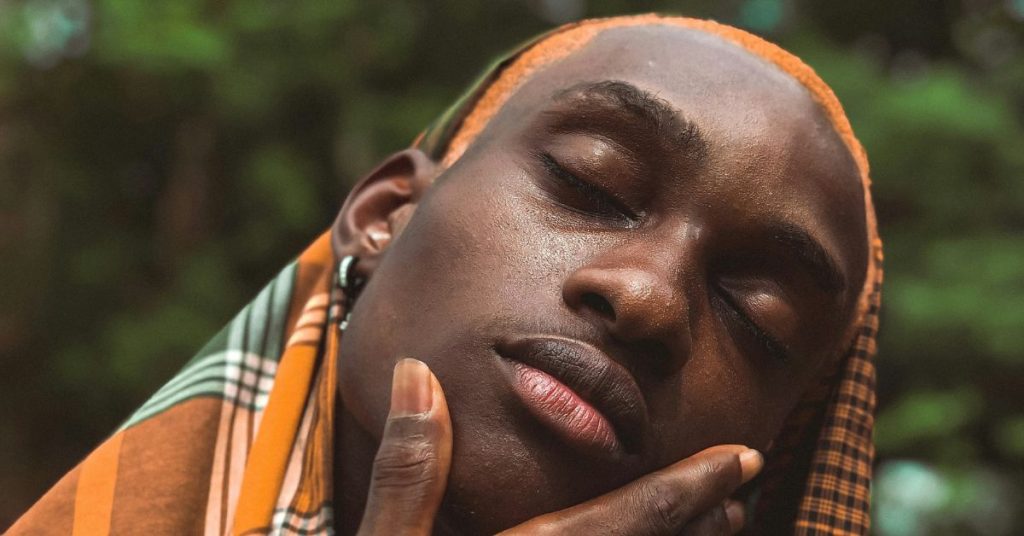I do not believe in God the way my congregation believes in Him.
My God is quieter, more abstract. More… convenient.
He does not punish me when I lie.
He does not strike me when I steal.
And when I take another man’s wife into the red room behind my office and she calls me “Daddy in the Lord”, my God turns His face politely, like a man refusing to watch his own shame.
I was not always this kind of man. But I was always good with words.
There was a time I sold mobile phone accessories in Ojuelegba, under a faded umbrella that smelt of sweat and sun. I could convince a man with ten naira in his pocket that he needed a screen guard for a phone he did not own. People would gather just to hear me speak. The first miracle I ever performed was convincing myself I was meant for something greater.
The calling did not come in a dream. It came in a moment of hunger.
I was twenty-four, jobless, and watching my roommate iron a pair of trousers he planned to wear to beg his uncle for rent money. The generator was humming like a beast. It was too hot to be poor. That was when the idea came. It slid into my mind like oil on a hot pan.
Start a church.
No taxes. No bosses. Just a microphone and the courage to say, “God told me.”
I held the first service in a borrowed living room. There were six plastic chairs and three people: two were cousins, the third was a girl I had once kissed behind a kiosk. I told them I had been chosen, that I had heard a voice, that this ministry was going to shake the nations. When I said “Amen!”, they said it back.
Power is not always taken. Sometimes, it is handed to you by people desperate to believe.
Now, the church is a building, painted a blinding white, with golden trimmings and a cracked crucifix that I refuse to replace because it reminds the people that even Christ suffered. When the testimonies are flowing, we seat three hundred, sometimes four.
They come with their stories: miscarriage, barrenness, visa denial. I place my hand on their heads and speak in tongues that I invented by myself.
Rata so mendale kashika. Hantora bekele mesinyo.
I say it fast, confidently, and with a slightly tilted neck. The key is the neck tilt. The other pastors do not know this.
The women fall the easiest, especially the ones whose husbands do not listen to them anymore. I tell them that their wombs are like Hannah’s, that their glory is buried under spiritual cobwebs. They cry. Sometimes they fall. Sometimes they bring me small brown envelopes. Sometimes they bring their daughters.
Once, a girl came in with soft hands and wide eyes and told me she wanted to “sow a seed of purity”. She could not have been more than seventeen. I remember her perfume—cheap and flowery, the kind that clings to your skin for days.
I did not touch her; I am a fraud, not a monster.
There are nights I cannot sleep. Not out of guilt, but because I am scared that one day someone will see me clearly. Strip the layers. Call me by my real name. Not Pastor Ezekiel. Not Daddy E. Not Prophet Firebrand. Just… Kenneth.
Kenneth, who failed WAEC Physics three times.
Kenneth, whose father beat the preacher out of him with a belt soaked in kerosene.
Kenneth, who once begged a girl named Amaka not to leave, even though he had nothing but a broken mattress and too many dreams.
There are parts of me I have buried under the pulpit.
Once, during a crusade in Aba, I saw a man in the crowd who looked like my brother. The brother I hadn’t spoken to since he called me a coward for stealing from our mother’s purse. I ignored him. I closed my eyes and screamed, “Holy Ghost Fire!” until the crowd roared and someone fainted.
Later, when the offering baskets were full and the lights had dimmed, I went to my hotel room and vomited until I could not breathe.
Do I think I am evil? No. Not exactly.
I feed families. I pay school fees. I preach hope to people who would otherwise rot in silence. I tell widows they are seen. I tell thieves they are forgiven. I give the people something to hold onto, even if it is a well-packaged lie.
I do not like mirrors.
Not because I think I am ugly. No. I am not an ugly man. My face is agreeable: strong jaw, eyes that can hold sorrow like wine in a glass. I have perfected the face of a man who has suffered for the Lord. That kind of face earns trust. Earns envelopes.
But I do not like mirrors because sometimes they catch me off guard. Sometimes, in the thick black between services, I will walk past the mirror in my office and see not Pastor Ezekiel but Kenneth—sweating, scared, mouth dry from lies; the Kenneth who cannot pray without remembering what he did last Tuesday; the Kenneth who does not know if he believes in anything at all.
When I was small, maybe seven, I saw a lizard fall from a ceiling fan and die. It didn’t splatter. It simply… stopped. Its tail curled like punctuation. I remember thinking: That’s all it takes. One slip, and even something that knows how to climb can die.
That image never left me.
Sometimes, when I am on the altar—sweat glistening, members vibrating, a woman writhing at my feet because I screamed the word “deliverance!”—I remember that lizard. I imagine myself falling, publicly, fatally. No tail to curl. Just disgrace. A man who climbed too high on a lie.
There is a man in my church: Deacon Mfon. Thick man with thick glasses and a thick voice that clogs the air when he speaks. He suspects me. He does not say it outright, but he tightens his mouth when I mention seed sowing. He coughs during testimonies. He watches me too closely, like he’s trying to find the lizard tail before it drops.
His daughter is one of my favorites. Not for anything wicked. She is simply kind. Her name is Imaobong, but I call her Joy, because that is what she smells like. She brings me fufu wrapped in leaves, not nylon, and prays for me when she thinks I’m not listening.
If I were a different man, I would have tried to marry her. Maybe that would’ve saved me. Maybe that would’ve ruined her.
Instead, I make sure her family always gets front-row seats and I preach extra long whenever her father narrows his eyes. It is a game. A theatre. A war I cannot afford to lose.
There was a woman once: Sister Amara. She came to me for healing prayers, but she stayed for something else. Not sex, not prophecy, not even the attention. She stayed because she believed there was something broken in me, something she could fix. She never said it out loud, but it sat on her face every time I laughed too hard or looked too long at another woman’s waist.
She brought books. Real ones. James Baldwin. Ntozake Shange. Books she claimed God told her I needed. I skimmed them and pretended to be moved. She had a way of looking at me that made me sweat in a different way, like she was not afraid of what she might find beneath the collar.
Once, I caught her standing in the hallway outside my office, watching me through the frosted glass. She had tears in her eyes. When I asked her what was wrong, she said, “You don’t have to do this. God is not looking for perfect men. He’s looking for honest ones.”
For a moment, I wanted to fall at her feet. To tell her everything. To weep. To confess. To collapse into the arms of a woman who saw Kenneth, not Pastor.
But the next day, I announced a 40-day fast and assigned her to the women’s prayer unit, where she eventually disappeared. Slowly, like mist.
She was the last person who ever looked at me and saw both the lizard and the ceiling fan. I do not think she hated me. I think she feared for me.
Sometimes I wonder what would happen if I confessed. Stood before the congregation and told them the truth. Told them that my tongues were false, that my visions were smoke, and that the anointing oil I sell for five thousand naira per bottle is just groundnut oil and ambition. Would they gasp? Would they weep? Would they set the church on fire or would they simply nod and say, “but he helped me”?
Sometimes, I daydream about running. Dropping the mic mid-sermon and disappearing into the streets of Lagos. Renting a small room. Opening a kiosk. Selling SIM cards again. Living as Kenneth. But then, who would tell these people that their lives still mean something? Who would give them the illusion of power? Who would give the broken mother something to pray with? Who would make people shake from the power of the Holy Spirit?
I have become necessary, even in my dishonesty.
And yet.
There is a boy who comes to the church every Sunday. A small, serious boy. Never smiles. His mother says he does not talk at home, but after my sermons, he hums. She calls it a miracle. She calls me ‘man of God’ with tears in her eyes.
I want to tell her that I am not what she thinks I am. But I also want the boy to keep humming.
So I smile. I raise my hands. I say, “Shabba lenko masaya!” I invent a new prophecy. I bless them in the name of a God I no longer fear.
And they believe.
And they believe.
And they believe.

Tomilola Adejumo is an emerging writer from Lagos, Nigeria, with published work featured in Brittlepaper, African Writer Magazine, Kalahari Review, Afritondo, Punocracy and The Shallow Tales Review. Tomi shares engaging stories, ranging from thought-provoking, nostalgic, funny, to haunting, on her Substack page, “Thoughts Archive.” She is on Twitter at ‘earth2Tomi.’
Because great writing shouldn’t be hard to find. Subscribe to get the best reads in your inbox.




